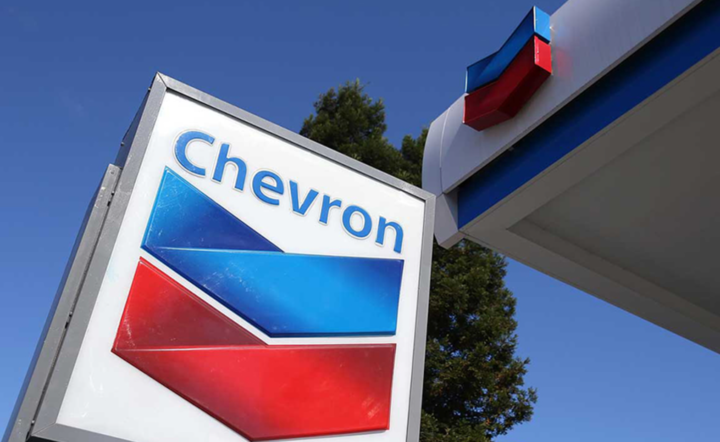Chevron Nigeria Limited (CNL) has reiterated its commitment to supporting the growth and development of Nigeria’s oil and gas industry, pledging sustained investment, technological expertise, and collaboration with stakeholders to maximise the sector’s potential.
Speaking during a recent industry forum in Lagos, Chevron’s Chairman and Managing Director, Rick Kennedy, said the company remained dedicated to working alongside the Federal Government and industry partners to enhance production, boost reserves, and ensure energy security for the country.

Kennedy highlighted Chevron’s decades-long presence in Nigeria, noting that the company has been instrumental in driving upstream production, midstream infrastructure development, and community engagement programmes in the Niger Delta region. He emphasised that despite global energy transition trends, oil and gas will continue to play a significant role in meeting Nigeria’s and the world’s energy needs.
“We recognise the global movement towards cleaner energy, but the reality is that oil and gas will remain essential for decades to come,” Kennedy said. “Our focus is on producing energy responsibly, safely, and efficiently while also investing in lower-carbon initiatives that align with Nigeria’s energy future.”
The Chevron boss explained that the company is currently implementing several projects aimed at sustaining and increasing crude oil and natural gas output. These include the expansion of offshore deepwater operations, the rehabilitation of existing production facilities, and the optimisation of joint venture and production sharing contract (PSC) assets.
According to Kennedy, Chevron is also committed to Nigeria’s domestic gas agenda, which seeks to expand gas-to-power projects, industrial utilisation, and export opportunities. He revealed that the company has significantly contributed to gas supply for the Escravos Gas-to-Liquids (EGTL) plant and other strategic initiatives that support the Federal Government’s “Decade of Gas” programme.
In addition to production goals, Chevron reaffirmed its commitment to sustainable environmental practices. Kennedy stressed that the company has made substantial investments in flaring reduction technology, carbon intensity minimisation, and biodiversity protection measures.
Chevron has also maintained a strong focus on community development through its Global Memorandum of Understanding (GMoU) framework, which empowers local communities to manage funds and execute projects that address their most pressing needs. This model has reportedly facilitated infrastructure development, educational scholarships, health interventions, and skills acquisition programmes across multiple host communities.
Industry analysts have welcomed Chevron’s renewed pledge, noting that Nigeria’s oil and gas industry requires consistent investment to maintain production levels amid maturing fields, infrastructure challenges, and security concerns in the Niger Delta.
However, they caution that global capital allocation is becoming more competitive, with many international oil companies (IOCs) scaling back upstream spending in high-risk jurisdictions. Chevron’s continued commitment is therefore seen as a vote of confidence in Nigeria’s investment climate, especially following recent reforms in the Petroleum Industry Act (PIA).
Kennedy acknowledged that operational challenges exist, including pipeline vandalism, crude oil theft, and regulatory bottlenecks, but expressed optimism that ongoing government interventions will address these issues. He reaffirmed that Chevron would maintain an open dialogue with all stakeholders to ensure operational stability and long-term project viability.
The Nigerian Upstream Petroleum Regulatory Commission (NUPRC) has also welcomed Chevron’s renewed engagement, with officials noting that the company’s technical expertise and investment capacity can contribute significantly to achieving the nation’s target of 4 million barrels per day production capacity in the coming years.
Chevron’s long-term plans reportedly include the development of new deepwater prospects, increased utilisation of digital technologies for reservoir management, and the integration of renewable energy components into select operations. These initiatives are aimed at ensuring the company’s Nigerian operations remain competitive and sustainable.
The company’s ESG (Environmental, Social, and Governance) performance has also been a focal point, with recent independent assessments ranking Chevron highly for community relations and safety performance in Nigeria.
Looking ahead, Chevron said it will continue to align its operations with Nigeria’s broader economic goals, including local content development. The company has pledged to deepen collaboration with Nigerian service providers, enhance technology transfer, and create more opportunities for indigenous businesses in the oil and gas value chain.
Kennedy concluded by reaffirming that Chevron’s presence in Nigeria is not just about resource extraction but about long-term partnership. “Our success is tied to Nigeria’s success,” he said. “We are here for the long haul, and we will keep working with all stakeholders to ensure that the oil and gas sector remains a driver of economic growth, job creation, and energy security.”
As Nigeria navigates the dual challenge of sustaining hydrocarbon production while embracing energy transition strategies, Chevron’s commitment is expected to play a vital role in stabilising and expanding the sector. With planned investments and collaborative efforts, the company aims to help position Nigeria as a resilient and competitive player in the global energy market for decades to come.
Support InfoStride News' Credible Journalism: Only credible journalism can guarantee a fair, accountable and transparent society, including democracy and government. It involves a lot of efforts and money. We need your support. Click here to Donate
